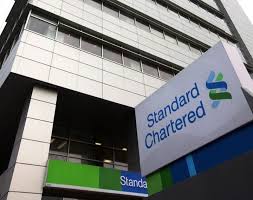After all-night negotiations, HSBC on Monday announced a deal to acquire the U.K. division of the defunct Silicon Valley Bank digital startup lender.
HSBC reported that SVB U.K. had reached an agreement to be purchased by its U.K. ring-fenced subsidiary, HSBC UK Bank, for £1 ($1.21). The parent company of SVB U.K.’s assets and obligations are not included in the deal.
The acquisition “strengthens our commercial banking brand and boosts our capacity to service innovative and quickly-expanding enterprises, notably in the technology and life-science sectors, in the U.K. and abroad,” according to HSBC Group CEO Noel Quinn.
Customers of SVB in the UK can carry on with their banking as normal secure in the knowledge that their deposits are secured by HSBC’s strength, safety, and security.
SVB U.K. has loans of approximately £5.5 billion as of Friday and deposits of approximately £6.7 billion. According to the Monday statement from HSBC, the bank expects to make £88 million in full-year profit before taxes in 2022. The bank stated that the “final calculation of the gain deriving from the acquisition will be given in due course,” adding that it anticipates SVB U.K.’s tangible equity to be in the neighborhood of £1.4 billion.
The sale, which was made possible by the Bank of England with help from the U.K. Government, will safeguard the deposits of SVB U.K. customers, according to a statement from the Treasury.
Following the announcement of the acquisition at 9:30 a.m. London time, shares of HSBC were down 3.4%.
The deal “ensures consumer deposits are secured and may bank as normal, with no taxpayer support,” British Finance Minister Jeremy Hunt emphasized.
He continued, “The UK’s tech sector is truly at the forefront of the globe and is crucial to the British economy, sustaining hundreds of thousands of employees.
Hunt had stated on Sunday that the Bank of England and the U.K. government were attempting to “prevent or minimize” any potential harm brought on by the U.K. branch of SVB.
On Sunday, American regulators also approved plans to support depositors and financial institutions connected to SVB’s American parent firm.
Both SVB and New York-based Signature Bank, which was shut down Sunday due to identical contagion fears, were recognized as systemic risks by the U.S. Treasury Department, allowing it to wind down both institutions in a way that safeguards depositors.
UK tech startups can breathe a ‘big sigh of relief’
Lingumi’s CEO and co-founder, Toby Mather, has been a customer of SVB for the past seven years and has deposited 85% of the company’s capital with the struggling lender.
He said the HSBC acquisition led to a “huge sigh of relief” for British startups on Monday, according to CNBC.
I believe I speak for UK startups when I say that this is a huge relief and we can say, “Not only will we be able to make the next payroll, but we can continue business as usual, continue innovating, doing our research, and development, and building the future of U.K. technology growth,” to our teams at 9 o’clock in our all-hands calls, which were going to be pretty nerve-racking this morning.
“HSBC is a fantastic result… I believe that one of the best outcomes we could have had was for the bank to go to a really big household name with a long history because it gives us confidence that we can now stick with the new SVB, which has been such a crucial partner to the startup ecosystem both here and in the U.S. for decades.
Bids received
With the failure of SVB U.S. on Friday, a number of prospective purchasers have submitted proposals to buy SVB U.K., amid widespread worry about the near futures of numerous British tech and health sciences businesses.
The Prudential Regulation Authority of the Bank of England and the U.K. Treasury both received formal proposals from a consortium of private equity firms that the Bank of London headed.
SVB “cannot be allowed to fail given the critical community it serves,” Bank of London CEO Anthony Watson said.
“This is a rare chance to keep SVB’s U.K. clientele satisfied while ensuring that the banking market in the country is more diversified. It would be extremely unfortunate if this situation resulted in more power consolidation among large banks.
The resolution of SVB UK’s U.S. parent bank and these actions have not directly or substantially impacted any other U.K. banks, according to the Bank of England, which also stated that the overall British banking sector is still “safe, sound, and properly capitalized.”

















